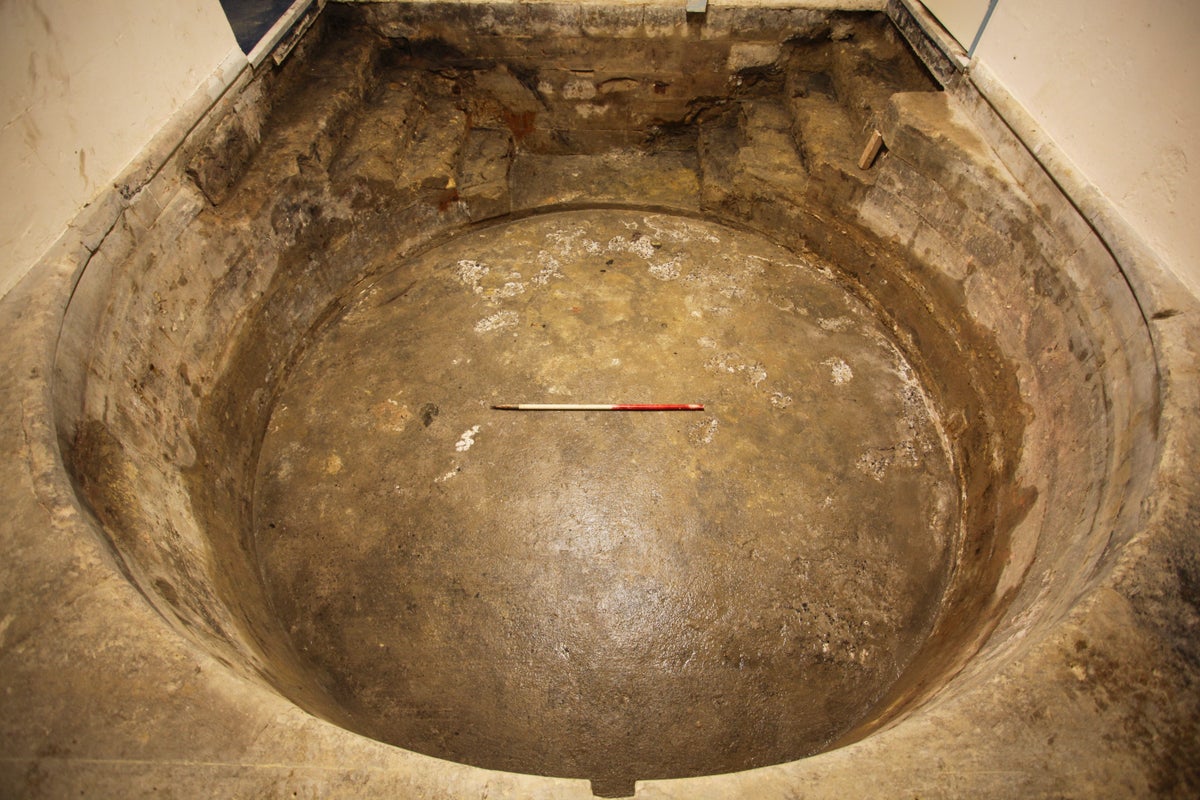
A one of a kind reinvigorating cold bath has been discovered in a basement of a Georgian night spot in Somerset.
The cold bath was found during excavations below the 18th century Bath Assembly Rooms in Bath.
Experts believe this could be the only cold bath of its kind located in a historic assembly room.
In the 18th and 19th centuries, assembly rooms were a popular place of entertainment, conversation, dancing and gambling in many fashionable towns across the country.
Bath and many other spa towns were known for their hot mineral water and became popular spots for bathing and “taking the waters”.
But in the 18th century medical practitioners also recommended cold bathing for men and women as beneficial for various physical and mental ailments, including gout.
They advised regular, if not daily, bathing by plunging into cold water for a short period of time and then warming up quickly afterwards.
There was a surge in plunge pools and cold baths in private houses and estates along with public facilities in Bath and other towns.
The installation of one at the National Trust property suggests it would have been more exclusive, and for those wanting a more private cold bath experience.
It is located beneath the ballroom with dressing rooms to either aide.
The excavation involved removing a later floor that had been installed over the bath and removing tons of rubble to reveal the historic steps down into it.
It was damaged from bombing in the Second World War and afterwards was filled in with rubble and a floor laid over the top.
Tatjana LeBoff, National Trust project curator, said: “There are many elements of this discovery that are still a mystery.
“The cold bath at the Assembly Rooms is highly unusual. It is a rare, if not unique, surviving example, and possibly it was the only one ever built in an assembly room.
“Whilst our records tell us about a variety of people who were employed at the Bath Assembly Rooms in the 1770s, none of the records mention anyone being employed to attend the Cold Bath.
“Nor are there records of bath sheets being hired or bought or any laundry service for them, so perhaps the bather would have brought their own towels and servant to help with bathing and dressing.
“It is unlikely men and women of status would have used the Cold Bath together so there could have been different days or times when they were available to each.
“We are still researching records, letters, diaries and other documents to see what more we can find out that will help us piece it all together.”
The excavation is part of a major project by the National Trust to take visitors to the Grade One listed building back to the social scene of Bath in the late 18th and 19th centuries.







